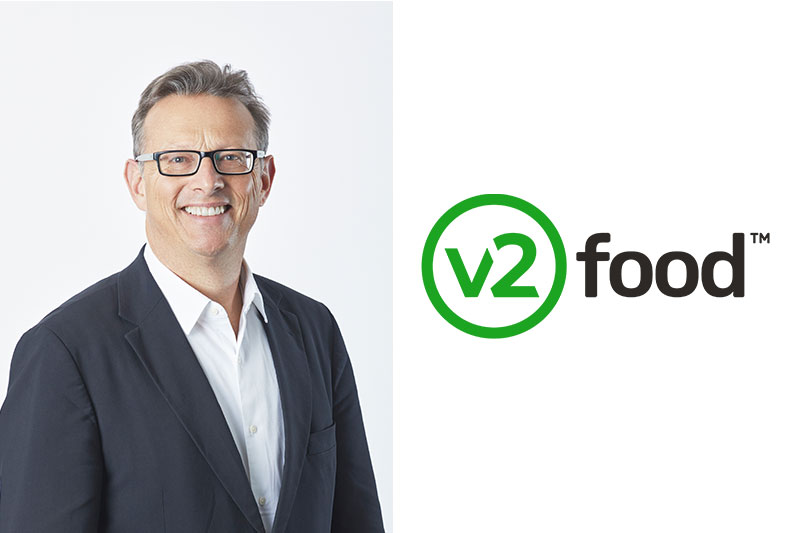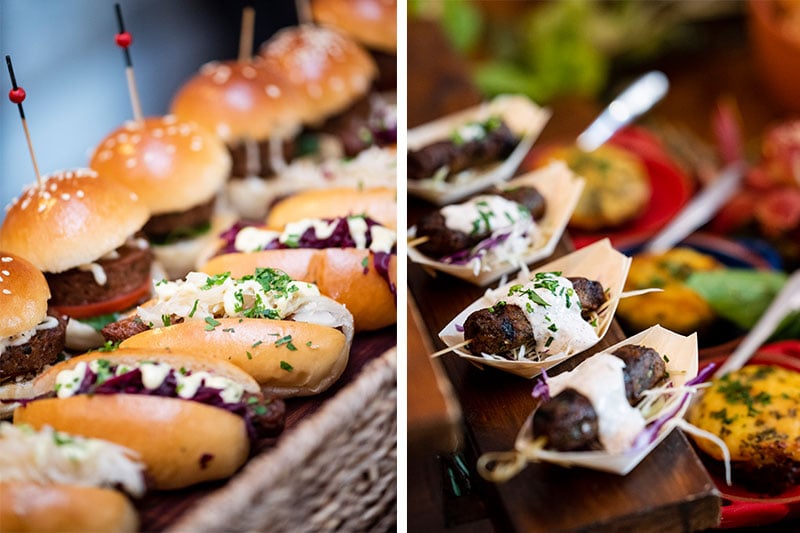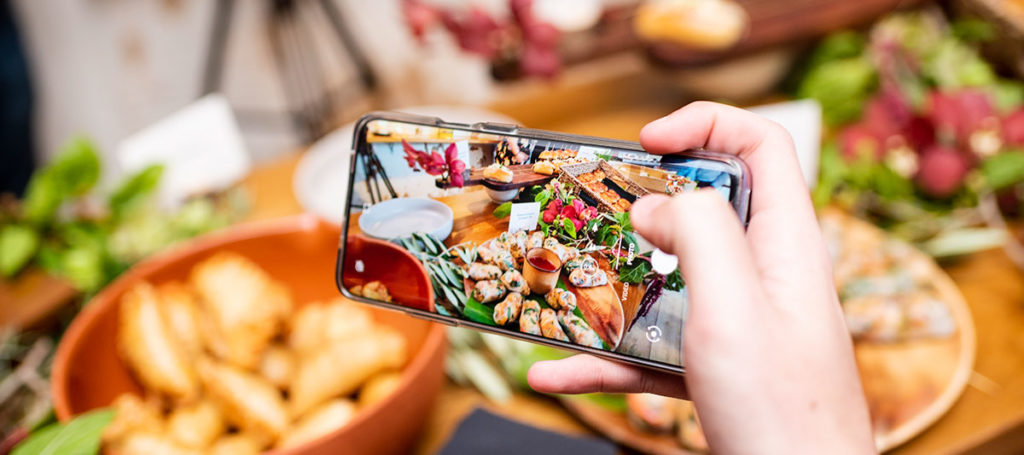Nick Hazell, the founder of food startup v2food, talks through the invention of his plant-based patties that fooled even the CEO of Burger King Australia into thinking they were real meat.
Ex-aerospace engineer Nick Hazell has been working in food innovation for most of his life. But, as far as he sees it now, there is really one standout question that pioneers like himself should be addressing. “Meat consumption per capita is going up dramatically, but the ability to source that demand from animal meat is impossible. The problem we’re trying to solve is never going to go away,” he says. As CEO of Australian startup v2food, he’s trying to solve that problem with a new type of plant-based meat developed in close collaboration with CSIRO, the Australian federal government agency for innovation and scientific research. Backed by Competitive Foods Australia – the group behind Hungry Jack’s and Burger King – their plant-based patties have already appeared in Hungry Jack’s ‘Rebel Whopper’ and are being used in restaurants around the country. Having been R&D Director for Mars and PepsiCo, Nick has spent years in food innovation, attributing the key drivers for success to customer satisfaction. “Right from the start, we said that for us to make a difference, we have to be appealing to people who love meat,” he says. He talks us through his drive to turn Australia’s burger fans around to a new way of thinking – starting with Australia’s Burger King CEO, Jack Cowin.

It took over 50 prototype versions for the scientists at v2food to finally accomplish the formula that would secure the backing of Cowin. “I did a presentation to Jack with a v2food Whopper and a normal Whopper from one of his restaurants, and he chose the wrong one. He told me, ‘You need to do some more work on this,”’ Nick laughs. “Then I said, ‘That’s yours!’” The main ingredients in v2food patties are legumes, sunflower oil, and added fibres, all of which are used to create a high-protein product with a similar structure to meat. “We are borrowing exactly the same flavour systems that there are in meat,” he explains, “but they’re also available in plants.” He is clear, however, that the product stands or falls on its flavour. “We’re not trying to create space food here. We’re trying to create food that people love to eat. Your favourite dinner will be something that your grandmother cooked you. We just have to fit with what people love. That’s our job as designers and as entrepreneurs.”
You might also like The Impossible Burger Hits the Shelves in the US. Will Asia be Next?

Since their launch in October 2019, v2food has continued scaling up their business with the help of CSIRO’s agri-sector, which employs over two and a half thousand PhDs and is the agency’s largest division. “We don’t have a lot of time and there is an urgency in our business,” explains Nick. “We’re very, very driven to get to scale quickly, and that changes the way you think. If we want to say that we’re sustainable, we’ve got to get to a carbon positive outcome.” What that requires is a constant assessment of all sides of their business, often with unexpected results. “It’s always surprising. You think, with logistics, that it’s the lorries and then you actually measure it and you discover that’s only 1% of your emissions.” He hopes that he can innovate to have a positive effect rather than just withhold from contributing to the negative. “Not only can we be less harmful, we can actually be part of the solution for taking carbon dioxide out of the atmosphere and putting it back into the ground where it belongs.”
As the growth of meat consumption continues to rise globally, Nick has set his eyes on Europe, the US, and especially the Asia Pacific region where the growth of meat consumption is at its highest. “We still have to grow meat because people eat meat, so this is no threat to meat producers. But there’s always going to be a shortage of supply. Globally, there has to be a reduction in meat consumption.” To broaden their reach, they’re looking at pork alternatives next, and Nick is determined to work with, rather than against, the meat industry. “Hungry Jack’s and Burger King are very happy,” he laughs. “You can’t feed the planet on just animal meat; you need to have both, but we shouldn’t be seen as a threat. This is a trillion-dollar opportunity.”
Related Articles
Omnipork: The Meatless Alternative Perfect for Asia’s Markets?
You’ve Had The Meatless Burger. Is It Time To Tuck Into Meatless Fish?
Meet the Brains Behind Asia’s Snacking Phenomenon The Golden Duck





